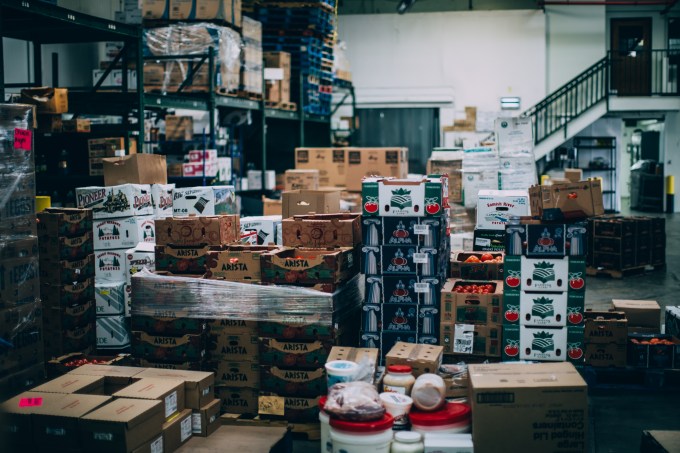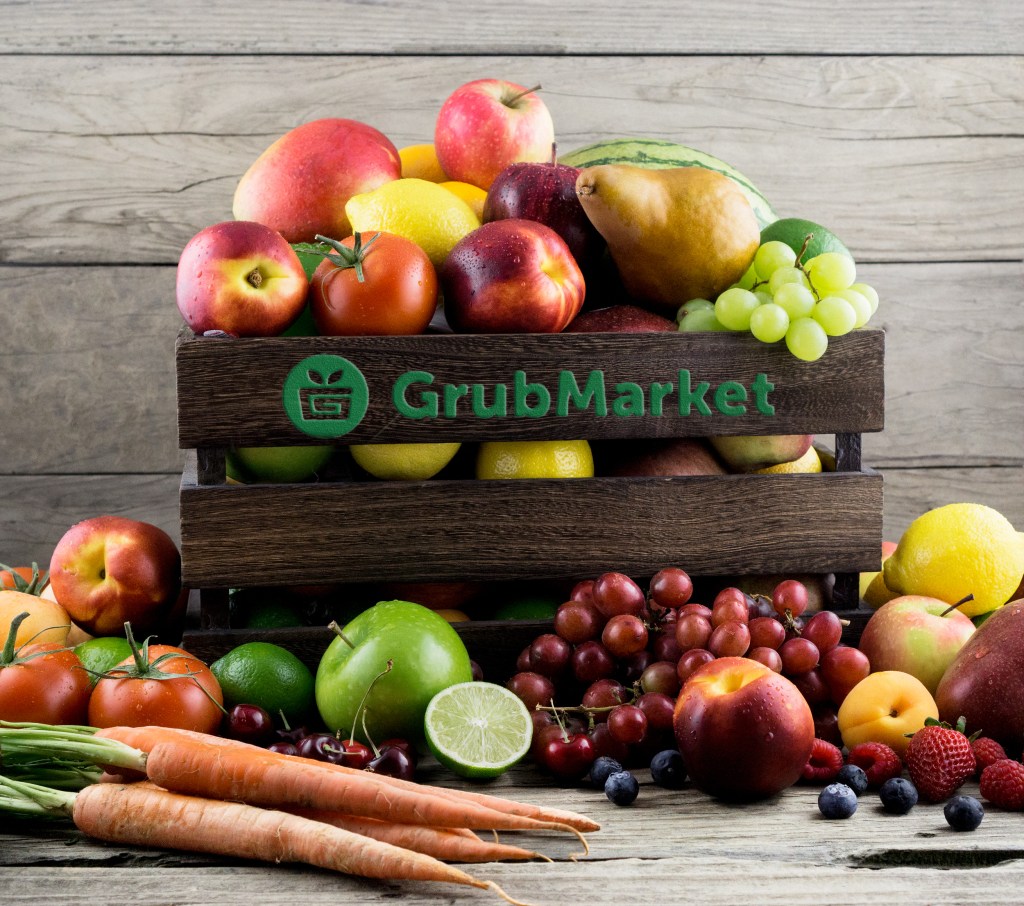Farmers markets have become a staple presence in many US cities, where there is a steady supply of smaller, often organic farmers and other food producers wanting a more direct channel to sell their goods, and a steady demand from foody types who like having the option of bypassing bigger grocery stores to amble around a group of stalls with a wider choice of items to cook and eat. Now, one of the startups that has turned that model into a profitable on-demand delivery business has raised some funding as it continues its expansion in the US, and beyond, en route to an IPO filing, potentially as soon as this year.
GrubMarket, which works with smaller farms and other suppliers to sell and deliver their items by way of its online store both to businesses — such as restaurants and stores of different sizes, as well as the plethora of food startups that prepare food for consumers — and consumers, has raised $25 million in an oversubscribed C1 round of funding (it was originally only going to be $15 million). (May 2019 update: ultimately the round actually closed at $28 million.)
The investment is being led by WI Harper Group and Digital Garage, with participation from other new investors Evolv Ventures, University Growth Fund, Arancia International Inc, CentreGold Capital and existing investors ACE & Company, GGV Capital, Fusion Fund, Bascom Ventures, along with other unnamed participants.
Mike Xu, GrubMarket’s CEO and founder, would not comment on its valuation, but starting from its earliest days as a member of the Winter 2015 cohort of Y Combinator, the startup has raised $89 million. And according to PitchBook figures — which we have confirmed with a close source are largely accurate — the pre-money valuation in this round was $230 million, which would put the post-money at around $255 million.
Xu said the company is currently operating on a $150 million annual run rate — versus $100 million when it raised $32 million nine months ago — and it continues to be profitable. Because of this, Xu said GrubMarket doesn’t need any working capital. It plans to use this $25 million instead to invest in more technology and acquisitions.
There have been advances on both of these fronts even before the funding.
GrubMarket has built its own SaaS platform to manage and plan its accounts, CRM and suppliers and now — taking a page from the Amazon playbook — offers it as a product to other food industry suppliers and vendors.
It’s also continued to make acquisitions in markets like Los Angeles and San Diego, consolidating local B2B competitors that, like GrubMarket, also worked with farmers and wholesalers and connected them to restaurants, schools and other organizations. It’s also expanded organically (so to speak) laying down roots in New York and New Jersey to grow business there, but buying up and rolling up will be a key focus as it looks to bump up its valuation ahead of a public listing.
“We have a few more major acquisitions to close within the next a couple months,” Xu said.

The list of investors that GrubMarket is attracting speaks to some of the opportunities for it in the years ahead. Evolv is a $100 million fund backed by none other than food giant Kraft Heinz that invests interesting food startups. And Xu told TechCrunch that having Digital Garage — the Japanese marketing, payment and internet services holding company co-founded by MIT’s Joi Ito — in the round is the startup’s first step to working on expanding GrubMarket into Asia.
“Digital Garage has access to most of the restaurants in Japan through its business there,” Xu said, “and ours is a model that could be populated there.”
Hungry for growth
GrubMarket’s rise is coming at an interesting time in the food industry.
“Farm-to-table” and organic eating — where you can trace the origins of a meal’s ingredients as part of a bigger emphasis on higher-quality and healthier dishes and supporting smaller producers — have become popular themes both at restaurants and among consumers and what they look for when they shop, but it’s inefficient in many cases for businesses to always go out and source each food item they use or sell themselves.
GrubMarket, with its network of producers, meets that demand with economies of scale that benefits both sides of its marketplace. On the buying end, brings together demand from both small and large customers: one of the startup’s biggest store customers in California is Amazon-owned Whole Foods. There are also examples of how the economies of scale work on the supplier end: GrubMarket has become the biggest mushroom supplier and Hawaiian produce supplier in Northern California.
Not all trends work in its favor, though.
One of the biggest themes in food has been the explosion of services that make it possible (and in some cases financially viable) for people to reduce the work involved in cooking, or to opt out of cooking altogether but still continue to eat well.
Targeting consumers who are not physically going to restaurants for every meal, we’ve seen a huge rise in the number of delivery services like Postmates and Doordash, which help people order essentially anything they want to eat from a wide range of eateries, at the tap of a button.
For those who still want to cook but don’t want to shop, or think of what they want to eat or how to make it, there are now many choices of meal kits from the likes of Blue Apron.
All these become competitors to GrubMarket — they are all going after the same share of people’s wallets. It’s an area that GrubMarket says it doesn’t plan to enter right now.
“We are familiar with meal kit companies because we supply a lot of them,” he said. “The business has good customer demand but also it’s fairly difficult to maintain that retention, and we are focusing on building a sustainable business.”
For those who are still buying groceries, but also are tapping into the convenience of having them brought to their doors instead of going out, we have grocery deliveries directly from stores or by way of third party services like Instacart, and those that directly compete with GrubMarket like GoodEggs or PeaPod. And for those who are still going out to buy groceries like in the old days, there’s a chance that Amazon still has your number.
“If Amazon started to focus more on food logistics and working with the kinds of businesses we do, I would definitely be worried,” Xu said with a little laugh. “But right now there is a very high bar of entry to get involved in that and in food, I think Amazon is still more focused on consumers.”
The wider context for food and meal startups has been a little dicey, all the same, and some have definitely not been able to make the economics of their businesses work.
BlueApron has been struggling since going public and just this week appointed a new CEO in an effort to turn things around (HelloFresh, its main rival, is one of GrubMarket’s customers). Munchery (which had been a customer of GrubMarket’s), shut down earlier this year. Chef’d, Maple, Sprig and others all failed to make ends meet in their own takes on food delivery.
One thing that GrubMarket has been doing differently from the start is developing two different lines of business. One is B2C that sells directly to consumers themselves. And the other is B2B2C, where it serves restaurants, schools, stores and other large organizations that in turn serve consumers — meaning that even those who are potentially competitors on the consumer side potentially can become GrubMarket’s customers on the B2B side. (Blue Apron, like Whole Foods, is one of GrubMarket’s biggest customers.)
Xu said that the B2B2C remains the bigger and faster-growing part of its business, but it still very much has its eye on the consumer part and plans to focus on growing it more, likely after it goes public, which remains the company’s long-term goal.
“I think this company has the potential to make $100 billion in e-commerce by buying from farmers and selling to the kinds of customers we serve today, but even if we came close to that, we’d still only have a single-digit percentage of trillions of dollars in the food supply industry,” he said. Overall, the value of the food and agriculture industry globally was $8.7 trillion in 2018. “That likely means you’ll have multiple Amazon-style companies existing,” he added.































Comment